Where do vegans get their protein? How can you get all your nutrients as a vegan? Can you get everything you need from food or do vegans need to take vitamins or supplements? What about Vitamin B-12? Omega-3s? Are you getting enough iodine? This vegan nutrition guide was written by vegan Registered Dietitian Taylor Wolfram to cover the plant-based nutrition basics.
Table of Contents
- Getting The Vegan Nutrition We Need to Thrive
- Protein
- Omega-3 Fatty Acids / DHA & EPA
- Vitamin A
- Vitamin B12
- Vitamin C
- Vitamin D
- Calcium
- Iodine
- Iron
- Zinc
- Bonus: Phytonutrients and Antioxidants
- In Summary
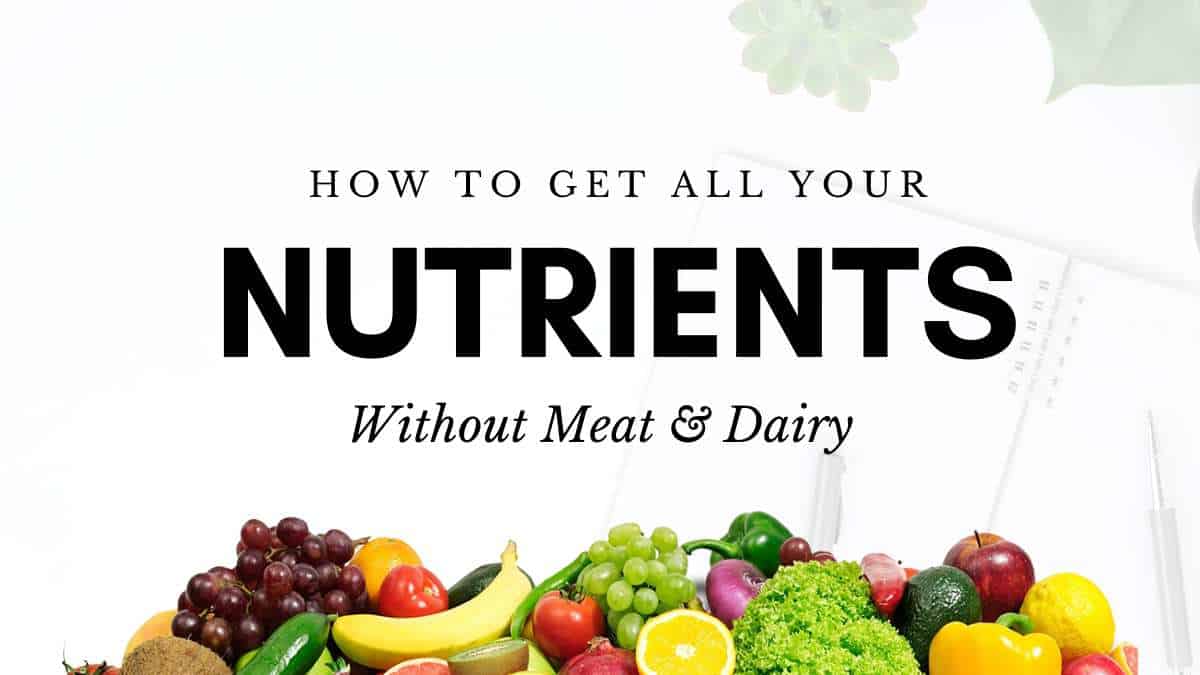
Getting The Vegan Nutrition We Need to Thrive
The human body requires lots of nutrients to function properly, including carbohydrates, protein, fat, 13 vitamins and many minerals. Some of them we can make ourselves and some of them we must obtain from the external environment (AKA food, the sun, supplements, etc.).
The good thing is it is totally possible to get all the nutrients you need as a vegan. And yes, you can do it without breaking the bank! It just takes a little nutrition knowledge, planning, and basic food prep skills. The following is by no means comprehensive but addresses several key nutrients, what they do, and where to find them.
For individualized nutrition guidance, reach out to a vegan registered dietitian nutritionist!
Protein
Many of you likely know that it’s pretty easy to get enough protein from plants without needing protein powders or bars, but in case you don’t, here’s a quick explanation. Protein can be found all over the plant kingdom, most notably in legumes which includes beans, peas, lentils, peanuts and soy foods such as tofu, tempeh and soy-based vegan meats. Whole grains, nuts, seeds and vegetables also contribute protein while fruit contains very little protein.
By eating a variety of these foods every day, you’re ensuring you’re getting enough protein and essential amino acids.
Aim for at least three servings per day of legumes (this includes beans, lentils, peanuts and soy-based foods such as tofu and tempeh), emphasize whole grains over refined grains, and get a couple servings of nuts and seeds a day and you should be good-to-go on the protein front.
Eating enough is also crucial. That way your body can use the protein you eat for important building functions and not for energy. Learn more about plant-based protein here.
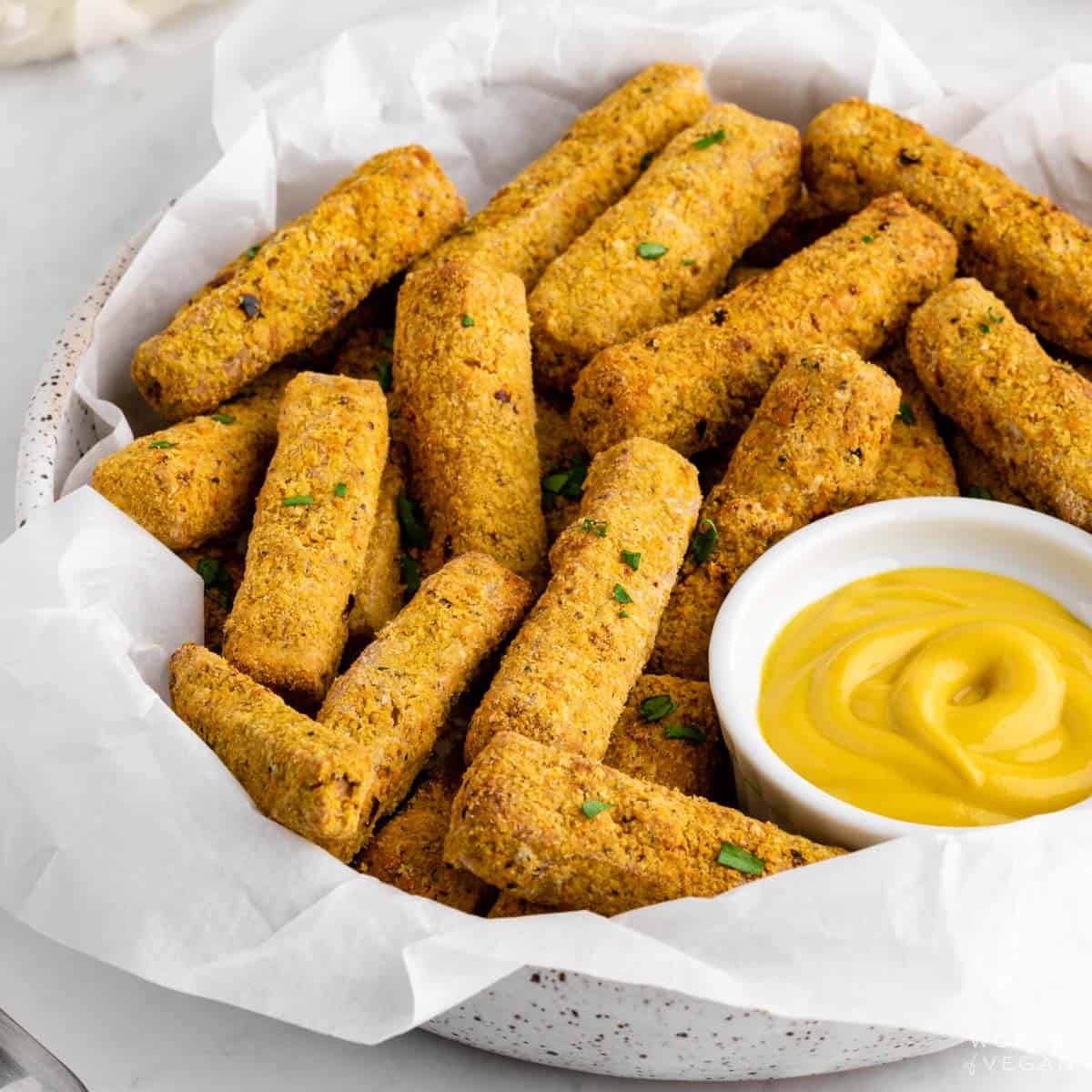
Omega-3 Fatty Acids / DHA & EPA
The long-chain omega-3 fatty acids DHA and EPA are linked with lower rates of heart disease and some cancers.
Fish are touted as a great source of omega-3s. But did you know that fish get their omegas from eating algae? And so can vegans!
Algae-based supplements are a direct way for vegans to get DHA and EPA. Our bodies also can make DHA and EPA from ALA, another kind of omega-3 fatty acid found in chia, flax and walnuts. However, many people have low conversion rates and without a way of knowing how good your body is at converting ALA to DHA and EPA, it might be a good idea to take a supplement.

Vitamin A
Vitamin A is a fat-soluble vitamin meaning you need to eat some fat with it so your body can absorb it. It plays important roles in vision, immune function and reproduction.
Vitamin A isn’t one single nutrient—rather, it’s a group of nutrients known as retinoids and there are two kinds found in food: preformed vitamin A and provitamin A.
Preformed vitamin A comes from animal foods and provitamin A are the carotenoids found in orange veggies and fruits such as cantaloupe, carrots and sweet potatoes and green veggies including kale, spinach and swiss chard.
The body can convert carotenoids into vitamin A. Therefore we don’t need to eat vitamin A from animals in order to get enough vitamin A!
Eat a few servings of green leafy and orange vegetables daily to ensure you’re getting enough vitamin A. Remember to use a little fat when cooking these foods to help your body absorb the carotenoids.
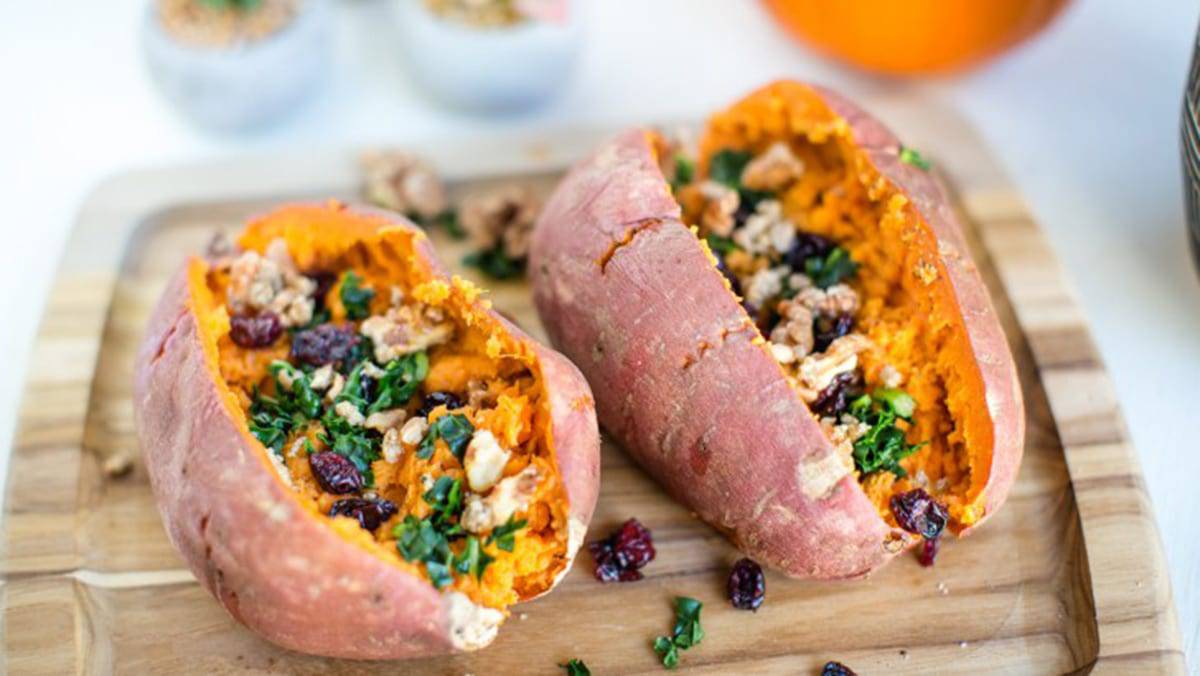
Vitamin B12
Vitamin B12 is essential for many cell activities, DNA synthesis and neurological function. Deficiency can cause anemia as well as neurological and nerve damage.
Vitamin B12 is the only nutrient that does not naturally occur in plant foods. It is made by bacteria living in the digestive tract of animals. (If you’re wondering why the vitamin B12 produced in our own bodies is not adequate, that’s because it is produced lower down in the digestive tract than where we absorb it).
You may have heard that some vegan foods such as sea vegetables and fermented foods provide vitamin B12, but this is a myth. These foods may contain inactive analogues of vitamin B12 but not the kind we need.
It is imperative to eat foods fortified with vitamin B12 and/or take a vitamin B12 supplement. Read more about vitamin B12 for vegans here.

Vitamin C
Vitamin C is essential for collagen production and immune function. It is plentiful in fruits and vegetables. Vegans should have no issue getting enough vitamin C if they’re eating several servings of fruits and veggies daily. Even white potatoes are an excellent source of vitamin C!
Vitamin C also is crucial for helping our bodies absorb the iron from plant foods. Make sure you’re eating vitamin C-rich foods, such as oranges, bell peppers, strawberries, kiwifruit, cauliflower and tomatoes, when eating iron-rich foods. Even a squirt of lemon juice can help the body absorb iron from plants.

Vitamin D
Vitamin D is a fat-soluble vitamin necessary to help our bodies absorb calcium. Many people need a vitamin D supplement, whether they are vegan or not.
Your body can make vitamin D when skin is exposed to direct sunlight, but there are so many factors that affect this that it is safer to rely on fortified foods and supplements.
Beware that most vitamin D used in fortified foods and supplements is from animal sources. Check the label to ensure the vitamin D is coming from a plant source such as lichen.
Learn more about vitamin D for vegans here.
Calcium
Calcium is key for bone health and many people wrongly assume you have to consume dairy foods to get enough calcium. Luckily calcium is available in many plant foods! However, not in amounts as high as dairy foods.
It’s important to consume enough calcium-rich plant foods daily (6 to 8 servings) and make up any gaps with a supplement. You can find calcium in calcium-fortified plant-based milks and juices, calcium-set tofu, collard greens, kale and figs. Smaller amounts of calcium are available in black beans, chickpeas, tempeh, almond butter, sesame seeds, broccoli and oranges.
Note: be sure to shake your calcium-fortified plant milk before pouring it so that you pick up the calcium that likely settled at the bottom of the carton!
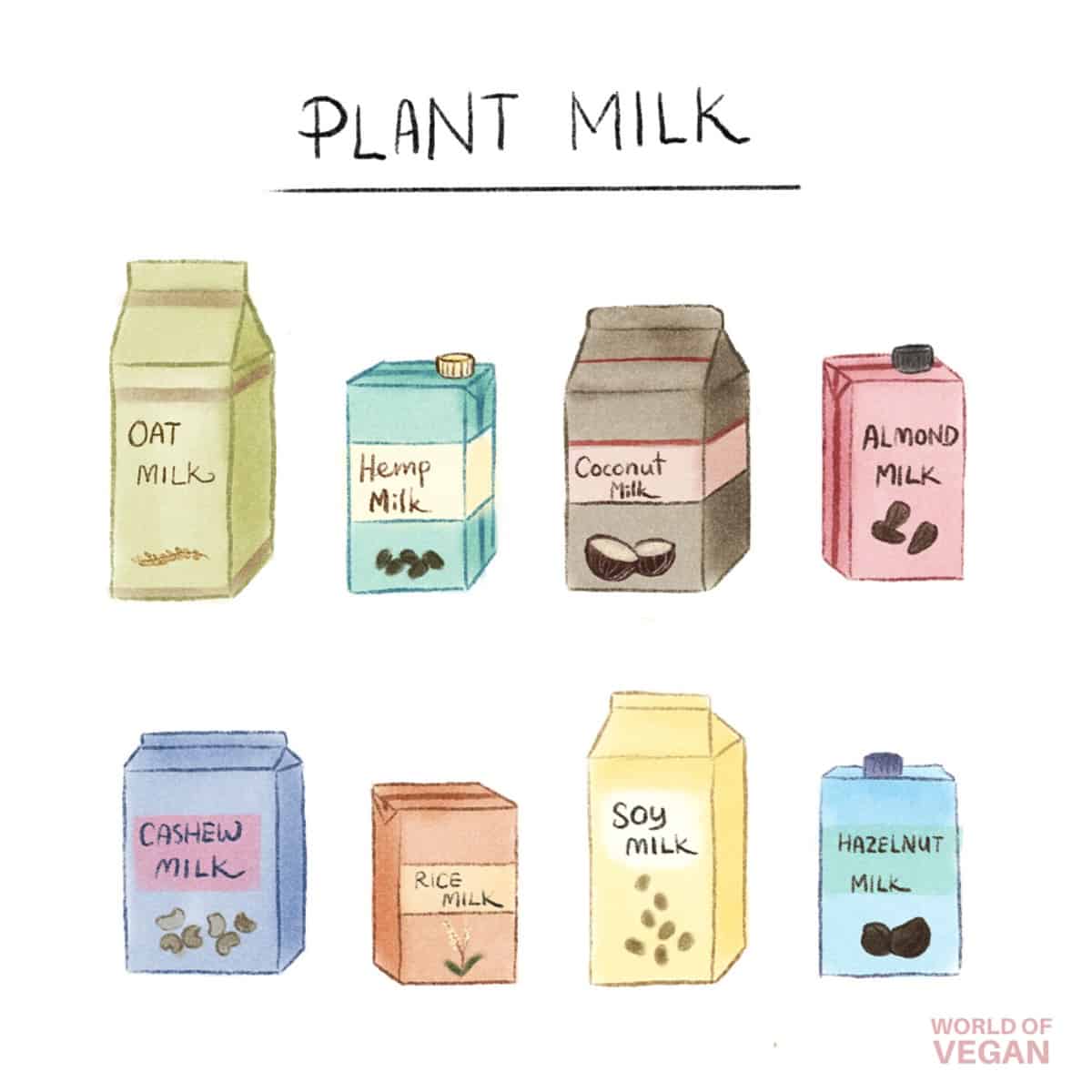
Iodine
Iodine is often left out of the vegan nutrition discussion but it’s an important mineral that’s crucial for thyroid health. An under-active thyroid, known as hypothyroidism, is when the thyroid is unable to produce enough hormones and can result in hair loss among other more serious symptoms.
Most people get iodine from eating sea creatures so if you’re vegan, you need to get your iodine elsewhere. Sea vegetables including kelp and dulse contain iodine but unless you’re eating these several times a week, you’ll need to get iodine from iodized salt or a supplement.
Don’t think you need to go crazy with salt to get enough iodine. Just ½ teaspoon of iodized salt contains all the iodine you need for a day, along with 1,000 milligrams of sodium. Note that salt used in processed foods is rarely, if ever, iodized. Therefore it’s important to get most of your salt from home-cooked foods seasoned with iodized salt.
Iron
We need iron to help our red blood cells carry oxygen around to all our body parts.
While red meat is a great source of iron, iron also can be found in plant foods. The type of iron in plant foods is called nonheme iron and is more difficult for the body to absorb than heme iron found in animal foods.
Good vegan sources of iron include black-eyed peas, chickpeas, kidney beans, white beans, soy beans, lentils, spinach, tofu, fortified cereal, swiss chard, sea vegetables and cashews.
Vitamin C helps the body absorb iron from these foods so be sure to eat a food containing vitamin C with these foods. Calcium inhibits iron absorption so if you’re taking a calcium supplement, do so at a time when you’re not eating iron-rich foods.
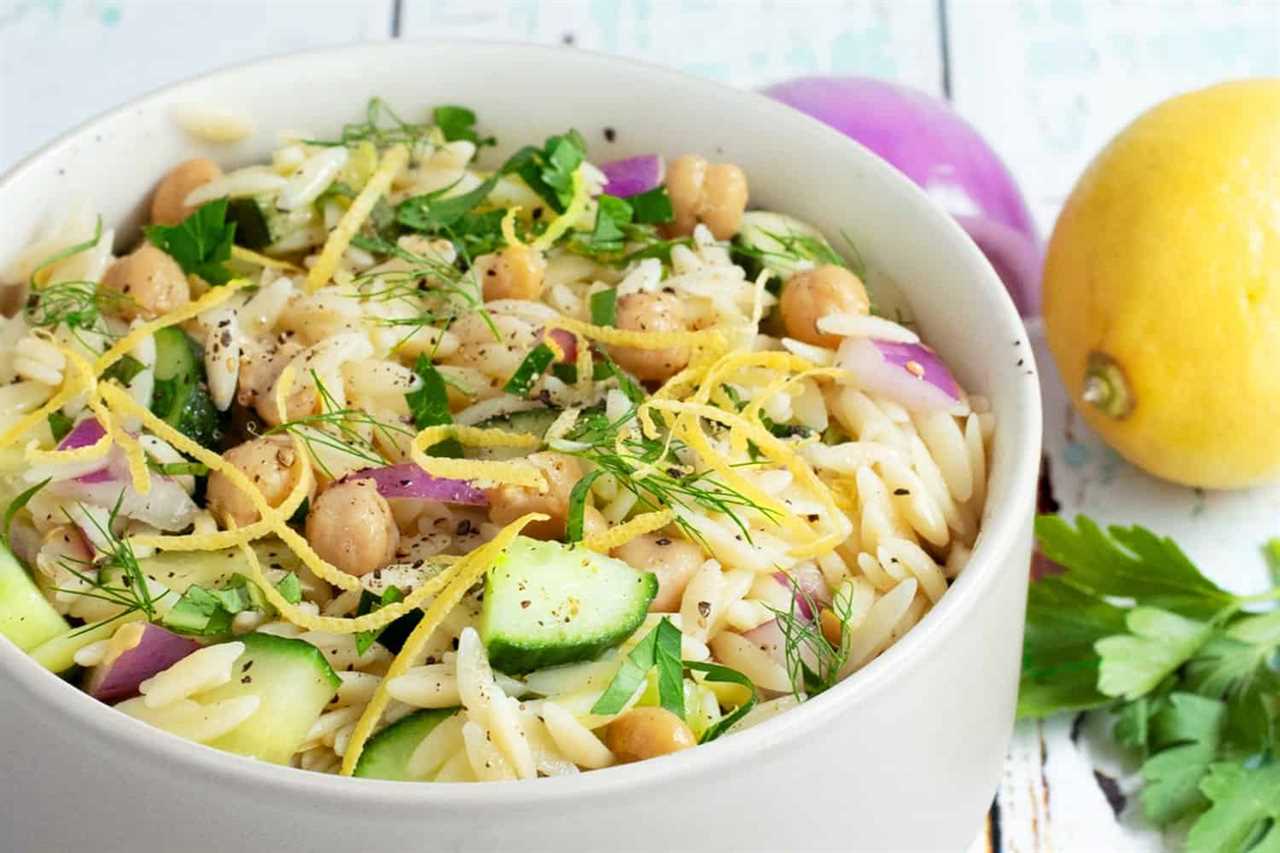
Zinc
Essential for growth, development and cellular metabolism, zinc is a mineral found in protein-rich foods.
Plant-based sources include pumpkin seeds, baked beans, fortified cereal, wheat germ, tahini, peanuts and cashews. It is found in smaller amounts in quinoa, oatmeal, lentils, chickpeas, tofu and tempeh.
Our bodies don’t absorb zinc as well from plant foods as they do from animal foods and vegans need to eat more zinc than meat-eaters. Make sure you’re eating a variety of these foods every day to meet zinc requirements. If you fall short, you can always take a supplement!
Bonus: Phytonutrients and Antioxidants
While not considered “essential” like the nutrients discussed above, phytonutrients are powerful substances found in plants that confer some sort of benefit to humans. There is evidence that these plant compounds can help prevent cancer, heart disease and other diseases.
Plant-based diets including lots of colorful vegetables and fruits, whole grains, legumes, nuts and seeds are loaded with health-boosting phytonutrients!
Antioxidants help neutralize harmful free radicals in the body, thus preventing DNA damage and reducing risk for cancer. Many of the nutrients found in plant foods, such as vitamins C and E and carotenoids, act as antioxidants.
In Summary
Between whole plant foods, fortified foods and supplements, you can get all the nutrients you need to live a happy, healthy vegan lifestyle!
The key to getting the most benefit from eating plant-based is to consume a variety of whole plant foods every day. When you base your meals and snacks on whole grains, legumes, vegetables, nuts, seeds and fruit, you’re loading up on nutrients.
That doesn’t mean there’s not room for processed foods, fun foods and celebratory foods. Fortified foods and plant meats can be key sources of important nutrients and it’s important for food to be pleasurable, too.
If you’re struggling to find balance with nourishing plant foods and an eating pattern that allows you to go out to eat and enjoy celebrations, work with a vegan registered dietitian nutritionist for personalized guidance. For more plant-based nutrition information, check out VeganHealth.org and the Vegan for Life book written by long-term vegan regiestered dietitians Jack Norris and Virginia Messina.
This vegan nutrition article about how to get your vitamins and nutrients as a vegan was written by Taylor Wolfram RD for World of Vegan. The information presented here is not to be construed as medical advice or used to diagnose, treat, cure or prevent any condition or disease.
The post Vegan Nutrition 101: How to Get All Your Nutrients On a Plant-Based Diet appeared first on World of Vegan.
By: Taylor WolframTitle: Vegan Nutrition 101: How to Get All Your Nutrients On a Plant-Based Diet
Sourced From: www.worldofvegan.com/vegan-nutrition-guide/
Published Date: Tue, 27 Feb 2024 21:21:03 +0000
Welcome to Paleovsketo.com, your trusted source for up-to-date knowledge on lifestyle nutrition! From paleo to keto, plant-based and mediteranian diets to intermittent fasting and weight loss - we’re here to help you feel and look your best with science-backed strategies.
We invite you to join us in our mission of healthier living through education, inspiration and empowerment. Together we can revolutionize the way people think about healthy eating by sharing our stories, passions, recipes and tips with one another. We believe everyone should act like they are a part of the universe with confidence, grace and integrity - that’s why all contributions are welcome! Join us on this journey as we unlock the secrets of leading a healthier lifestyle - email us at [email protected] today!
Frequently Asked Questions
Are children able to eat a plant-based diet with no restrictions?
Adults are becoming more interested in plant-based diets due to the numerous health benefits. But parents might be wondering if a diet based on plants is safe for their kids. The answer is yes, children can follow a plant-based diet if it is well-planned and meets their nutritional needs.
Children can grow and develop their bodies by eating plant-based foods. It is essential that children are getting enough protein, iron and calcium as well as vitamin D and vitamin A12. Protein is essential for growth and development, and good plant-based protein sources include beans, lentils, tofu, and nuts. Fortified cereals and leafy plants contain iron. Calcium is crucial for healthy bones and can be obtained from fortified plant milk, calcium-set tofu, and leafy greens. Vitamin D is vital for bone health. You can get it from fortified milk, sunlight exposure, and fortified plant milk. Vitamin B12 is an essential vitamin for healthy nerves. It can be found only in animal products. A B12 supplement may be necessary for children who are on a plant-based food diet.
Also, it is important that children who eat a plant-based diet get enough calories to meet their energy requirements. It is important for parents to provide a variety whole foods such as fruits, vegetables (including whole grains), legumes, nuts, seeds, and legumes. Children may need more food or smaller portions in order to get their energy requirements met.
To ensure that your child's diet is healthy, it is a good idea to consult with a registered dietitian. They can also guide meal planning, supplementation, and age-appropriate portion sizes.
Children can follow a plant-based diet that meets all their nutritional requirements. With proper planning and guidance from a registered dietitian or healthcare professional, parents can ensure that their children eat a nutritious and healthy plant-based diet.
Can you still eat out at restaurants on a plant-based diet?
Many restaurants offer vegan options on their menus. There are many vegan restaurants opening up in large cities and towns. They offer a wide range of delicious and healthy food options. Most mainstream restaurants have vegetarian-friendly options. There is still plenty to choose from when you are looking for a restaurant that serves a plant based diet. You can find recipes with vegetables or legumes, such as seitan, tempeh, and seitan. Instead of using mayonnaise, high in saturated fat dressings or mayonnaise, use vinegar and healthy oil. Don't be afraid to ask your server what items can be made vegan or have dairy substituted with coconut or almond milk.
You can also research vegan cookbooks ahead of time to get ideas on how proteins can be substituted for meats and rich sauces. Most restaurants will be happy to accommodate guests who are vegan or vegetarian and will try their best to make sure they do. Easy to enjoy a plantbased meal at a restaurant if you are creative and willing to do some research.
It is possible to switch to a plantbased diet.
Changing to a plant-based diet may feel intimidating, but it doesn't have to be. It is possible to gradually transition to a plant-based diet and make tweaks that feel doable. Every person is different so it is important to adapt the transition to suit your lifestyle. You can make the transition easier by focusing on whole foods over processed foods. This ensures that you are getting enough of essential vitamins and minerals as well as macronutrients. It is also beneficial to focus on creating healthy, delicious meals that meet your dietary needs.
Individuals can make it easier to stay focused on their goals of a transition to a plant-based diet by creating a support network made up of family members, friends, and certified health professionals. Making new recipes is a great way to spice up your journey. So that people don't feel deprived or bored, there are plenty of delicious vegan options. A successful journey to plant-based living can be achieved by slowly changing your diet while paying attention to your daily nutrient intake.
Is there a limit to how much meat you can eat on a plantbased diet?
A plant-based diet does not allow for any meat. This diet eliminates all animal products including poultry, fish, and meat. Many vegan substitutes offer the same flavor without using animal products. For example, soy-based meats such as tofu, seitan (wheat gluten), tempeh (fermented soybeans), and mock duck made from mushrooms can mimic the taste of traditional meat dishes. Vegetarian burgers made of black beans and/or quinoa can be as good as beef burgers. Other tasty vegan alternatives include coconut bacon strips or eggplant bacon bits; tofu mayo; veggie hot dogs made with seasoned textured soy protein; and faux chicken strips from wheat gluten. These options can be a great option for people who are looking to move to a plantbased diet.
Supplements are necessary when you eat a plant based diet.
While a well-balanced plant-based diet can provide all the essential nutrients for maintaining good health, certain micronutrients are best supplemented to cover possible deficiencies. Vitamin B12, which is important for cognitive and nervous system health, is typically only found in animals. Supplemental forms of this vitamin might be helpful to vegetarians and vegans. Many foods based on plants lack sufficient iron and zinc. These minerals are essential for healthy metabolism, red cell production, tissue growth and repair, as well as healthy metabolism. Essential for normal body functions, like controlling inflammation and proper brain function, omega-3 fatty acids are also important. Because of their biochemical nature, many plant-based foods don't contain enough omega-3s. Supplementation could help restore the delicate balance. The last thing is that calcium is crucial for bone strength. But, it can also come in small amounts from plants like broccoli and Kale. So if you don't have enough calcium from your food, consider adding a supplement. Before you start taking any new supplements, it is a good idea to double-check with your doctor.
Statistics
- A study found that livestock provides just 18 percent of calories consumed globally but takes up 83 percent of farmland. (forksoverknives.com)
- Another found that following a diet rich in plant foods and lower in animal foods was associated with a 16 percent lower risk of cardiovascular disease and a 31 to 32 percent lower risk of death from cardiovascular disease. (everydayhealth.com)
External Links
[TAG30]
[TAG32]
[TAG34]
[TAG37]
- Effects of Plant Based Diets on Weight Status: a Systematic Review - PMC
- Healthcare professionals can use plant-based nutrition to prevent and treat chronic diseases. PMC
How To
How do you make plant-based meals that are both delicious and filling?
Cooking plant-based meals that are delicious and filling is achievable with the right ingredients, preparation, and creative recipes. Start by buying fresh produce and other high-quality ingredients. Next, create a grocery shopping list that is based on the recipes you intend to make. You can also shop at local farmers' markets or health food stores. To keep food fresh, you should also invest in the right storage equipment.
Next, focus on variety when meal prepping. This means that you should emphasize whole foods such as fruits, vegetables, seeds, legumes, and legumes. Also, try to get different colors of produce for better nutrition. A balanced combination of fiber, protein and healthy fats should be considered in each meal. You can also make batch cooking easier by using kitchen appliances such slow cookers or multi-cookers.
It's possible to be creative while following a vegan diet. You can experiment with different flavor profiles. Adding spices such as chili powder and cayenne pepper to dishes can make them more delicious while keeping them healthy. Plant-based meals can be transformed from bland to delicious by using whole foods, rather than processed substitutes. For example, you can make beans instead faux "meats" or roast butternut squash in place of french fries. If all else fails you can mix leftovers from earlier in week to create something new.
By utilizing these tips, individuals can enjoy a delicious plant-based diet without sacrificing flavor or fullness - so go forth and get cooking!
Resources:
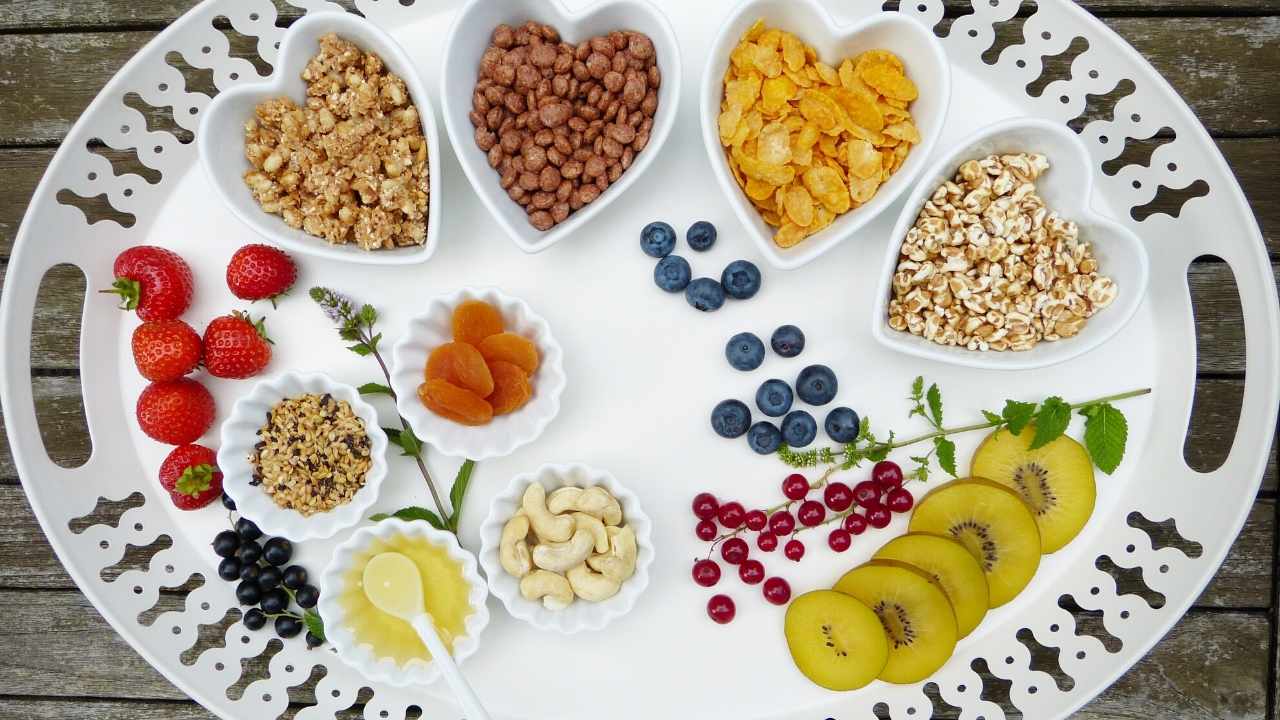 |
[TAG40]These thumbprint cookies offer classic shortbread flavor with dazzling jam centers. Using almond flour makes them gluten free and extra delicious! They’re |
 |
[TAG41]Ever tried artichoke in lasagna? If not, you’ve been missing out. This vegetarian recipe is freshly flavored, hearty and cheesy, but not too heavy. It’s a |
 |
[TAG42]No one food can reduce your risk for cancer, but there is an overall diet that can. Learn what it means to eat a plant-based diet and see all the ways it can |
 |
[TAG43]February is here! If you bookmarked any hearty soups and stews that you haven’t gotten to try yet, this is the month to make them. In just…The post What to |
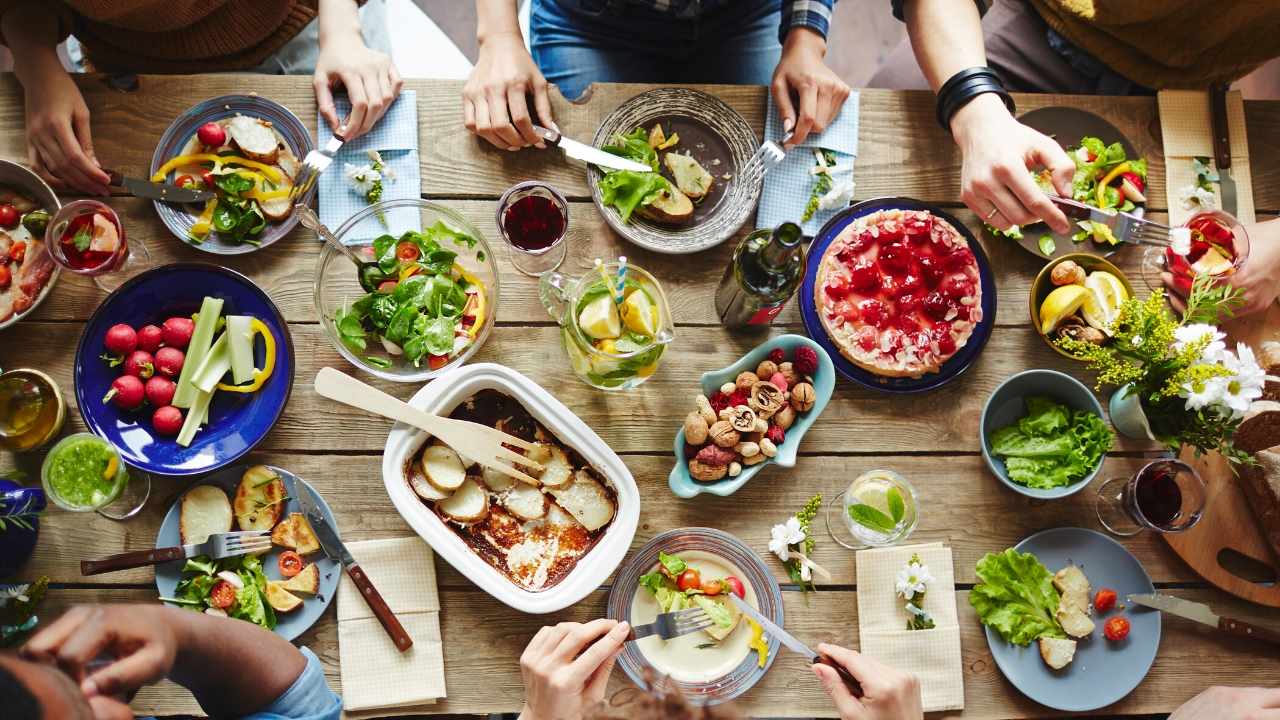 |
[TAG44]Here’s a fun take on roasted broccoli! Regular roasted broccoli is forever and always one of my go-to side dishes, but this cheesy smashed broccoli recipe |
 |
[TAG45]Following a plant-based diet (think vegan, vegetarian, or even flexitarian) is associated with a bevy of potential health benefits. That includes a lower risk |
 |
[TAG46]Bored by your dinner plans? This green goddess tahini will liven up any basic meal! I’m always so happy to have it in the refrigerator to serve…The post Green |
 |
[TAG47]3 More Complete Plant-Based Proteins 👇🏾Part 2 Peace and blessings! Here is Part two to 3 of the complete plant-based proteins. A quick refresher: a |
 |
[TAG48]... |
 |
[TAG49]Let's talk about an evidence-based approach to preventing and treating chronic kidney disease with a whole food plant-based diet. What are the ideal foods to |
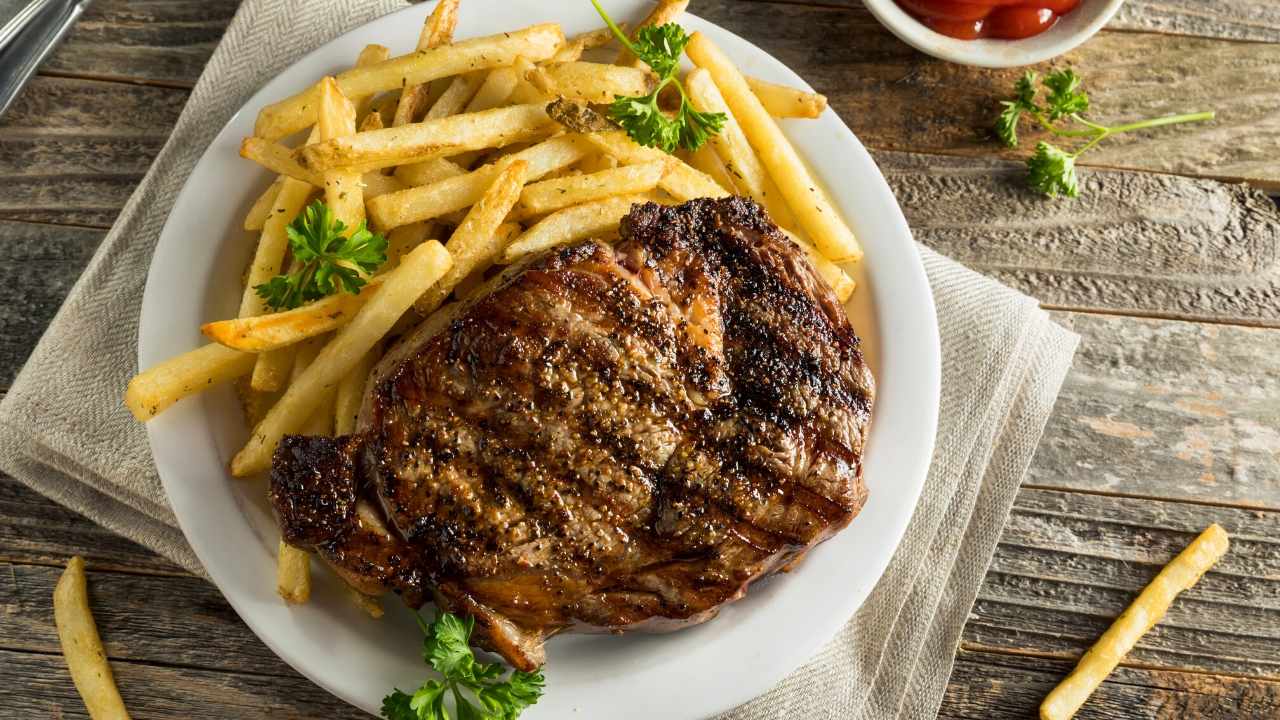 |
[TAG50]Blueberry Ice Cream Recipe (vegan, no sugar, plant-based) This low-fat, plant-based vegan blueberry ice cream recipe is sweet and delicious, yet it has no |
 |
[TAG51]Choosing more plant-based foods can help you eat a healthier diet. A Heart & Stroke dietitian explains how. |
 |
[TAG52]Unveiling the Truth: Does a Plant-Based Diet Really Improve Digestion? Get on our email list for a weekly free webinar. |
 |
[TAG53]Watch the full video here: WHAT IS THE DIFFERENCE BETWEEN VEGAN AND PLANT-BASED 🤔 Media links. My Amazon recommendations: Social Media |
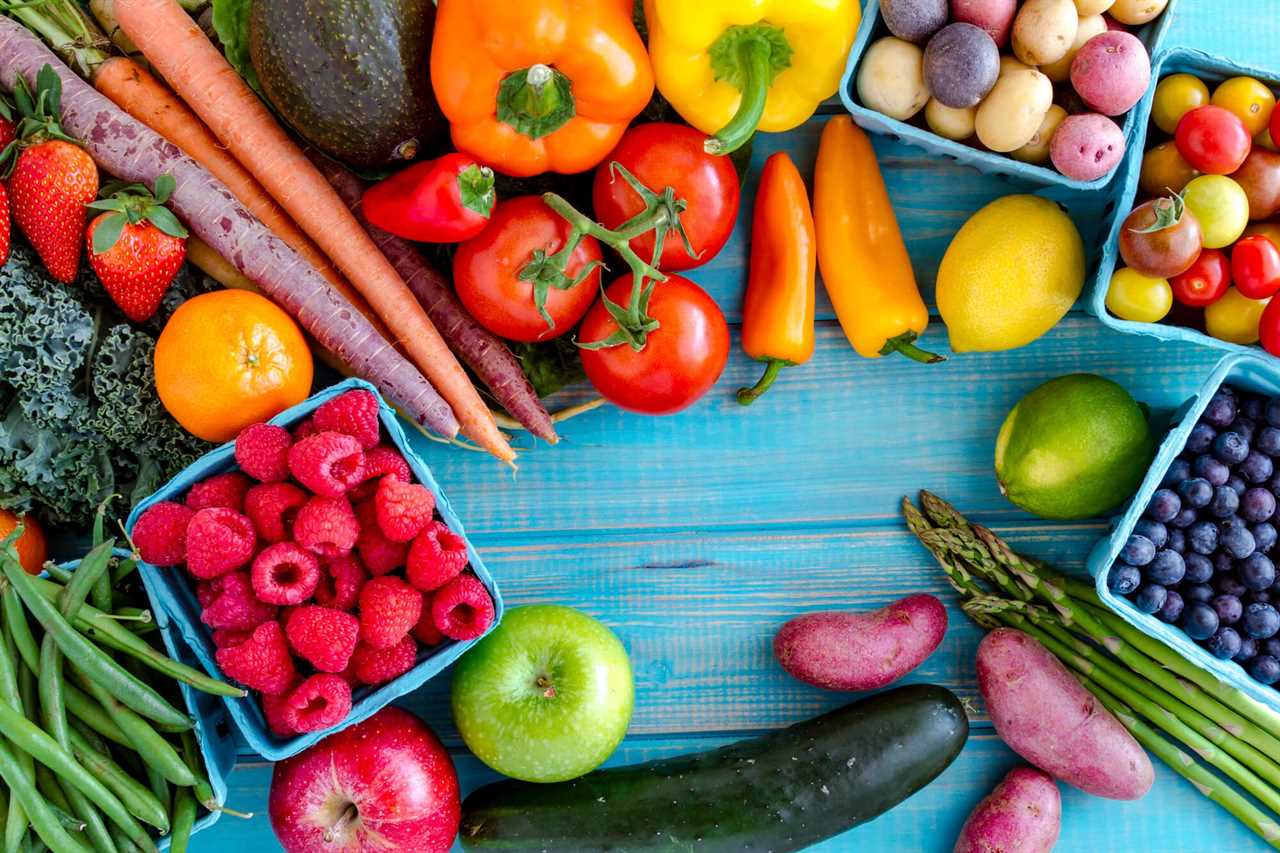 |
[TAG54]One of the most powerful steps you can take to improve your health is to move to a plant-based diet. We have everything you need to know to get started here |
 |
[TAG55]Quinoa is PACKED with plant-based protein and fiber (plus some folate, antioxidants, iron, and more!). It is such a great nutritious addition to your meals to |
 |
[TAG56]Inspiring plant-based success stories that offer encouragement to those considering adopting a whole food plant-based lifestyle. Take a look at these Before & |
 |
[TAG57]Whether you’re considering eating less meat or giving it up entirely. |
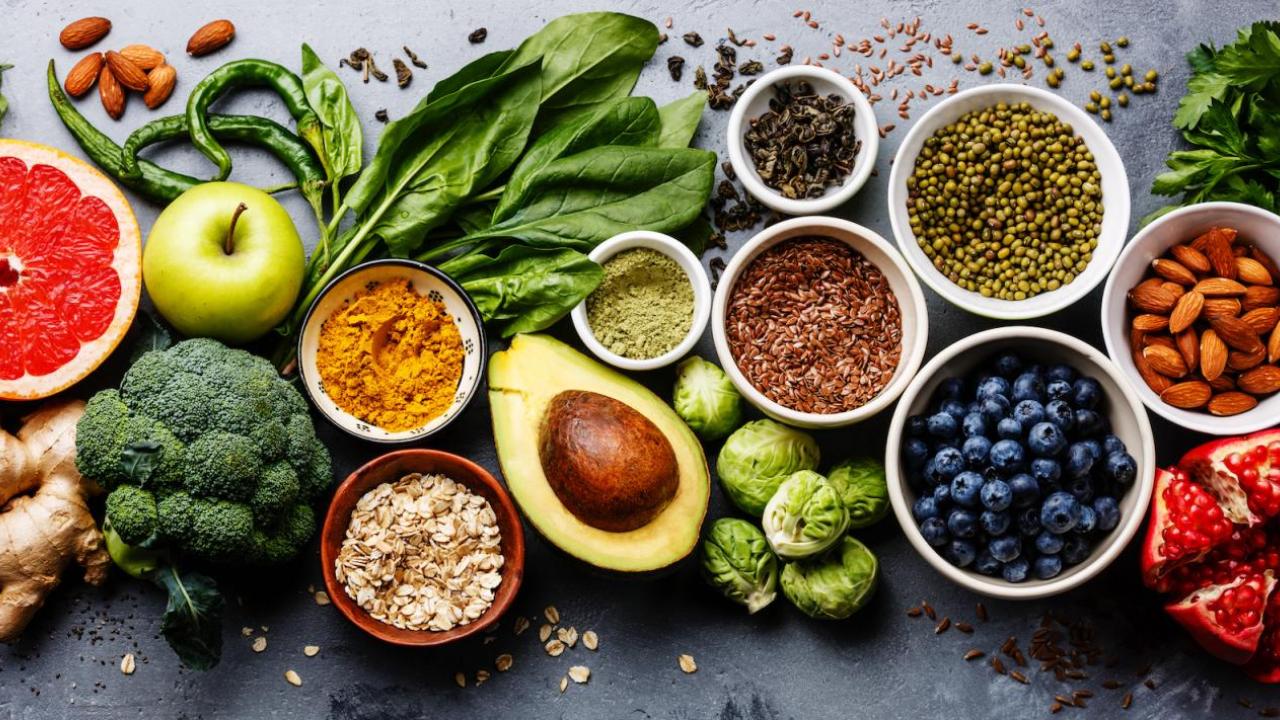 |
[TAG58]Columbia and NYP nutritionist Sabrina Toledano explains the benefits of a plant-based diet and how to get started. |
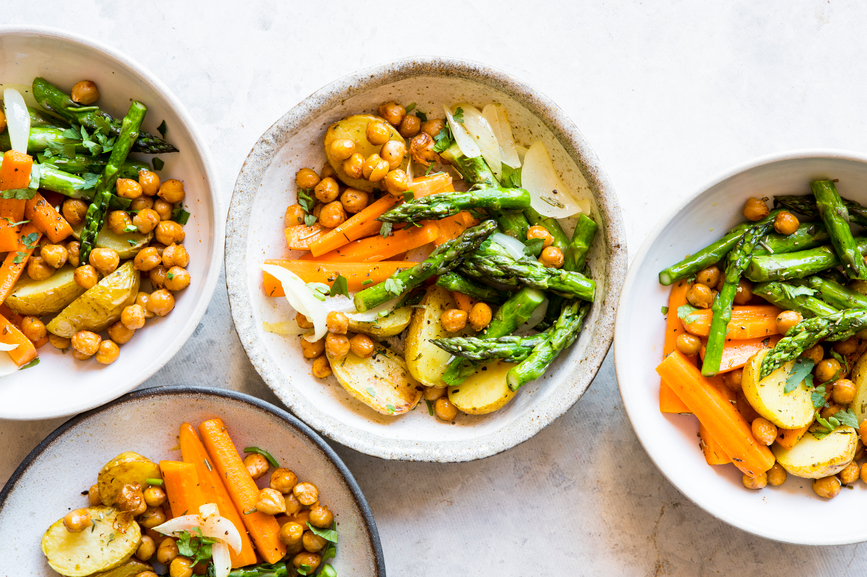 |
[TAG59]Hint: Your energy levels, gut microbiome, and environmental impact all win big. |






